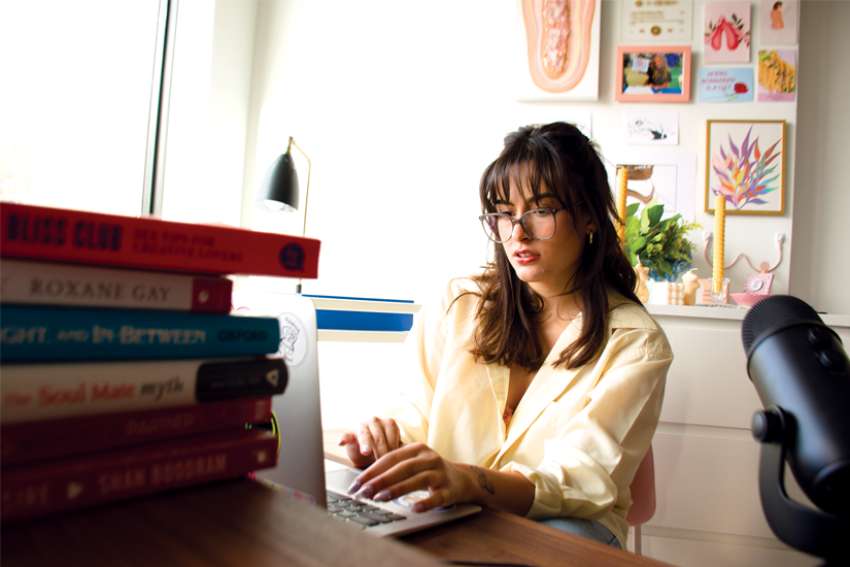For Catholics and non-Catholics alike, many parents struggle to talk to their children about sex.
Unsure of when, why and how to tackle the subject, and perhaps having unanswered questions themselves, parents can feel disempowered to lead healthy, open dialogue. But avoiding the subject is not an option for Catholic parents, says Angela Braun, Niagara, Ont., regional director of Parents As First Educators (PAFE), a Catholic group supporting the authority of parents over the education of their children. It’s a topic she says Catholic parents need to face head on.
A mother of 10 ranging in age from 19 to 38, Braun understands it’s a delicate subject that requires parents to be attuned to their children’s developmental stages. Taking a holistic approach that includes not just biological but spiritual, religious, psychological, social and cultural factors is essential for healthy development.
Fears that they might not have the knowledge to answer questions that could arise holds a lot of parents back from engaging in meaningful conversation, suggests Braun. Taking advantage of the wealth of resources available through the Catholic Church is a first step in feeling more comfortable and equipped to lead the conversation.
“It’s an insecurity, but it doesn’t need to be there because all the resources are there for parents,” said Braun. “Let’s throw away the fear and empower ourselves and empower our (children) to be confident in who God created them to be and to have healthy friendships. Help them to have a healthy body image not based on what Hollywood is saying but based on how God created them. Perhaps many parents don’t realize how important our influence is.”
This shows as a report published in the Canadian Journal of Human Sexuality in August 2021 that found undergraduate students aged 17 to 25 reported their sexual education overall (parents and in school) largely focused on topics such as negative health outcomes and physiology while social and emotional topics were less likely to be formally covered.
Felicia Gisondi had a very narrow understanding of sex and sexuality when she started at Montreal’s McGill University a few years ago. Raised Catholic, she says most of what she learned about sex was through her peer groups which she likens to “the blind leading the blind.” She was not directly informed at home about the emotional and psychological aspect of sex and like many young people didn’t have models of a healthy relationship. She entered the dating world naive with a distorted subconscious comfort zone in relationship.
She learned “the hard way” when at 19 she began having unprotected sex with her university boyfriend who she wrongly assumed was being monogamous. She contracted bacterial vaginosis and consistently caught urinary tract infections and wasn’t sure why.
At the time she didn’t know how to communicate her boundaries, her values or how to engage in dialogue early in the dating phase to ensure she and her boyfriend were aligned in their beliefs and expectations.
“In the moment I didn’t even understand that it was super unsafe,” said the 22-year-old. “Even beyond just being sexually unsafe in that relationship, I was also very emotionally immature and incapable of communicating my desires and feelings to my partner. I kind of thought because I had this notion of traditional values of boy meets girl and falls in love and gets married that that’s what everyone else upheld but that’s not the case. Obviously, it was very naive of me, but it was also the most amazing learning experience.”
The residual impact of 19th-century teachings — which then saw sex, even within marriage, as morally tainted — continues to plague society, says Braun. Freudian theories that everything is about sex does another disservice. Parents need to get beyond this to lead healthy discussions on the subject.
The truth, she says, is grounded in Catholic teachings about the beauty and sacredness of sex and teaching about it needs to address the holistic needs of the individual as reflected through Scripture. Pope John Paul II’s Theology of the Body, a lecture series on human sexuality, Catholic philosopher Dr. Alice von Hildebrand’s book The Privilege of Being a Woman and books by Catholic apologist Trent Horn are just some of the materials that can begin to equip parents on the journey towards healthy open dialogue, said Braun.
“The pendulum swung between two extremes when it comes to sex, but truth is not found between two errors. Truth comes from above. If you look at the Theology of the Body, the truth and meaning of human sexuality is beautiful and teaching about it has to be integrated into the person. We can’t separate our sexuality from our emotional needs, psychological needs and spiritual needs.”


